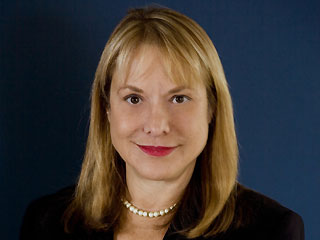My daughter was born on Mother’s Day, 23 years ago. It was the happiest day of my life — matched only, almost three years later, by the birth of my son.
I had never felt such love before.
Hooray for Hallmark.
Years passed. My own mother died. My daughter went off to college and then graduated. My son went off to college.
I see young mothers struggling with squirmy children, exhausted mothers losing their tempers in the mall, mothers and daughters walking and shopping, women my age caring for their own mothers, and I know how hard some of those moments are. But still, I am hopelessly jealous.
I want to say to those tired women, “Don’t you know how lucky you are?” — as if my saying it would somehow light a bulb in their brains, calm their nerves, make them realize that the days may be long but the years are so very short. They fly by, and suddenly you are alone at the mall, on the walk, and instead of a squirming child in your arms, you have time on your hands, instead of too many calls from your mother, there are no calls at all.
So this column is not for all the mothers who will be surrounded by family on Mother’s Day; it’s not for the sons and daughters who will be toasting their mothers on what is the biggest day of the year for eating out.
This one is for those of us who have lost our mothers, for those of us whose children won’t be with us that day, for those who never knew the joy I did or who loved and lost.
This one is for those of us who are trying to make our peace with the hardest part of being a mother (or a child), which is not sleepless nights, expense, exhaustion or aggravation. It’s letting go.
It is true. From the time our children are born, we begin the process of letting them go into the world, and they begin the process of leaving us. That is a mother’s most important job: not to hold on, but to let go. All of those stories about the mother bird sitting on her eggs and then the baby birds flying away… How could I have missed that? My mother hated birds. Maybe that’s why.
There is a scene in “White Oleander,” a wonderful novel about the foster care system, that describes teenage girls, abandoned by their mothers, giving birth, screaming in pain, crying out for their mothers.
To grow up without a mother’s love leaves a hole you never stop trying to fill. But no matter how we try, no matter how much we love, in ways big and small, we disappoint our children, we do things wrong, we fail them.
“Just you wait,” I want to say to those young women. “If only I could do everything again,” I say to myself.
I remember a moment, years ago, driving with my two young children in the back seat. I was one of those girls who always had an easier time with my professional life than my personal life. I knew I was smart, but no one ever told me I was pretty. I knew I could support myself, but I feared I would always be alone. And there I was with two children — my children, my blessed, beautiful children! And I wanted to freeze the moment, to be there always, right there.
But of course, that is not how life works. Children need to grow. They need to have their chance at life, with all of its ups and downs. And as they age, so do we.
So, 23 years later, I will not be toasting my new baby on Mother’s Day. I will do what I do most Sundays: go to the market, read the paper, do my work. My children will call me, and I will tell them I am fine, good luck with exams, congratulations on the new cat, I am so proud of you. I will think of my own mother, may she rest in peace. I will try to remember, really, how lucky I am, how grateful I should be. I will do my best, which, ultimately, is all any mother can do.
To find out more about Susan Estrich and read features by other Creators Syndicate writers and cartoonists, visit the Creators Syndicate website at www.creators.com.
COPYRIGHT 2013 CREATORS.COM



